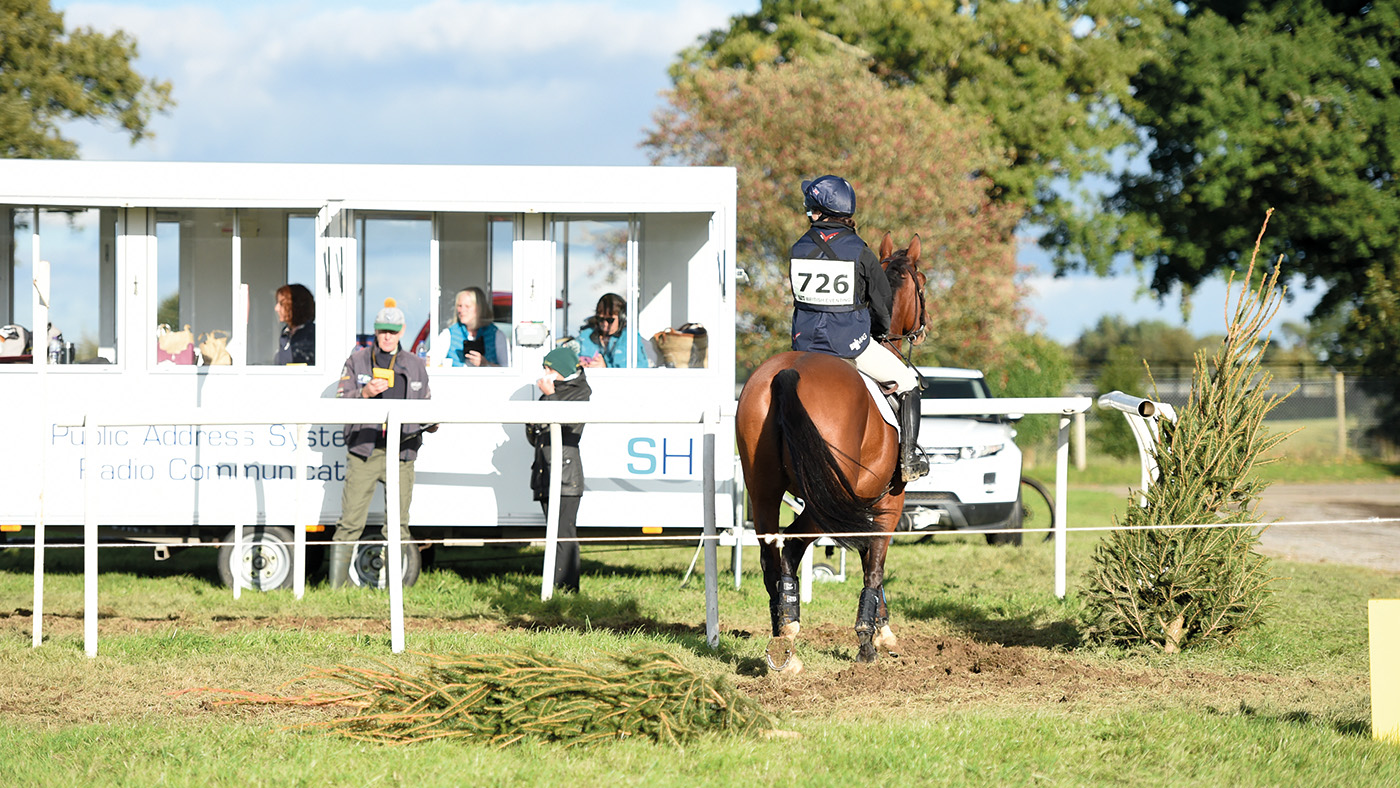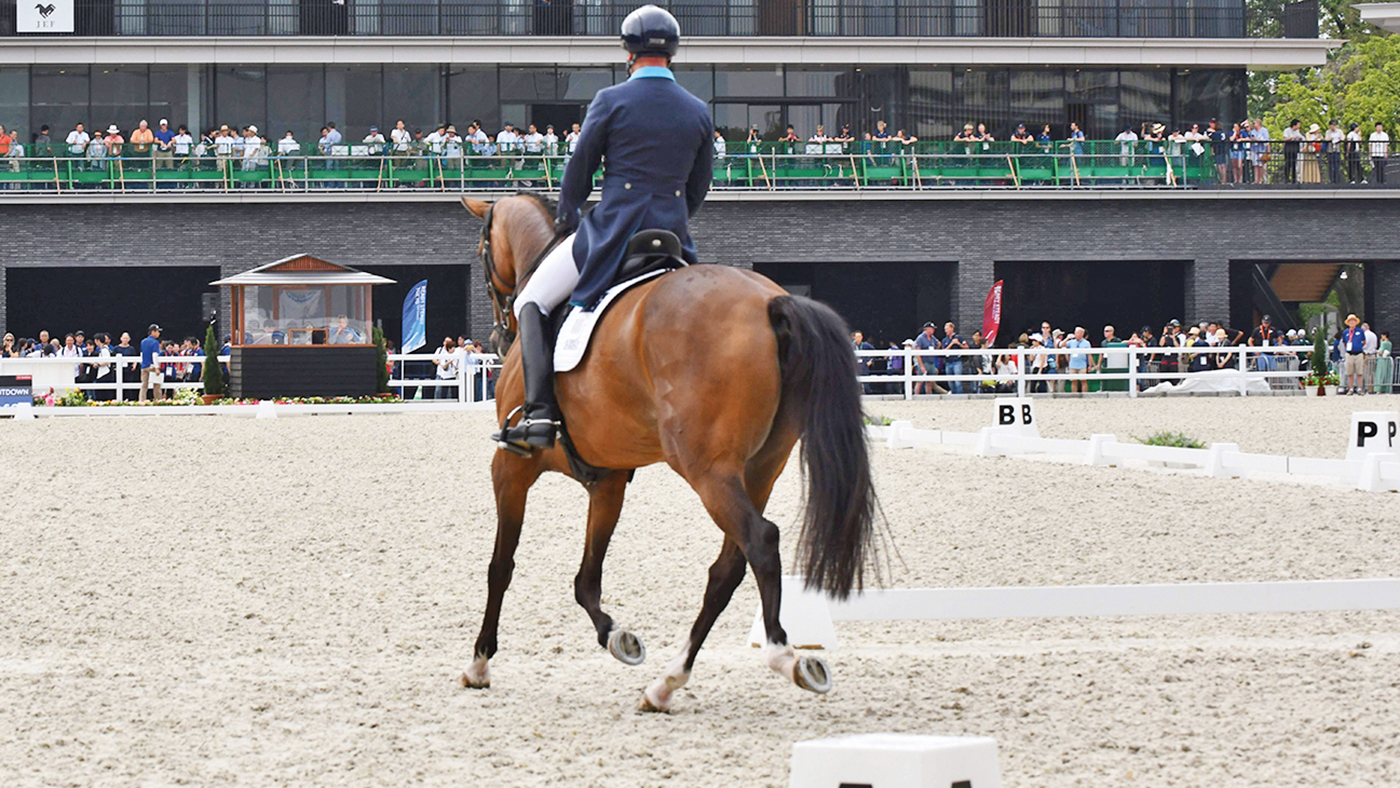With the return of affiliated competition on the horizon, riders are tuning back into their competitive instincts. Madeleine Silver asks the experts how to crank up motivation and prepare for post-pandemic success
Ask dressage Olympian Laura Tomlinson what show she’s dreaming about when this is all over and she’ll tell you in a nanosecond: Olympia.
“For me, normality would be an arena full of a packed crowd, a freestyle, that hustle and bustle,” says the mother of three, who admits that her horses were something of a sanctuary from the “the chaos in the house” during this lockdown.
After a year of turmoil and pent-up ambition, competitive instincts might be fiercer than ever, but preparing to perform on any stage after such a hiatus is a daunting prospect.
“You definitely get ring rusty,” admits Laura. “A lot of our European competitors have had some decent shows recently which we haven’t. We have to come out firing, and that’s a lot to ask for the horses who haven’t been in the ring. You can’t really substitute the practice of being in the ring a lot, but it is a good thing to be aware of and we have to just do the best to mitigate that.”
As Surrey-based chartered sport psychologist Jo Davies says, now is a time to focus on what we can control as the rocky roadmap out of the pandemic unfolds.
“I think one of the challenges has been the uncertainty of not knowing exactly when competitions will restart and having no clear date to work towards,” says Jo. “Autonomy or a feeling that you’re the one driving your journey is a key factor that makes up motivation, and I suppose that’s something that is damaged by lockdown because we don’t have a choice when competitions restart. So, then it’s about taking back control of what you can and optimising the time that you do have.”
Improve your riding skills with Horse & Hound’s new online rider confidence course. Learn how to overcome low confidence and gain a positive mindset
It’s an ethos that eventing world champion Ros Canter adheres to.
“I try to stay as laid back as I can about [the changing eventing calendar] because it’s something that’s out of my control. What will be will be, and we have to make the best out of the situation that occurs, rather than wishing that Badminton is going to miraculously appear again. There’s always initial disappointment when things don’t happen how you want but I’m very much trying to refocus and keep preparing my horses the best I can. When the calendar emerges in a clear way, we’ll make a plan and go full steam ahead,” she says.
Setting yourself goals – whether it’s around a horse’s way of going or your own posture – and then mapping your progress, is a way to regain a sense of autonomy, says Jo.
For Ros that has meant focusing on her own strength and conditioning (boosting not only her performance but confidence, too), alongside appreciating the extra time she’s had to spend with her young daughter Ziggy.
And at Laura’s Gloucestershire base, a recent home show for those with horses on the yard gave a sense of focus and a reason to prepare a test, with Laura’s coach Carl Cuypers judging in his car and competitors plaiting up and wearing competition kit.
“I think people have just been creative in how they’ve switched up getting feedback and that accountability,” says Jo, who sent videos of herself riding tests to her coach during the first lockdown, followed up by a phone call to debrief.
The unexpected silver linings of the lockdowns have provided another valuable boost to motivation.
“It’s not been easy, but I’ve personally had more time to do serious stuff with the young horses, so it’s been double-edged,” says grand prix dressage rider Louise Bell. “And I’ve been brave enough to say to my owners that I want the horses from scratch because I have time to do it, which has been great.
“I think this last lockdown has made me a little bit more practical, too – don’t get your hopes up, don’t get carried away. I’m quietly optimistic [about what’s going to happen] but I’m aware that everything might go Pete Tong, especially with EHV-1,” adds Louise, who’s craving the camaraderie of competing.
“I’m fortunate enough that I’ve been around, I’ve had the ups and downs and I’ve hit rock bottom, I’ve had it all. When I compare this to my real hard times, this isn’t one. And I’m feeling hungrier than ever [for success] because I’m getting older and I’m running out of time; I’m not 22 any more.”

When eventer Caroline Clarke aims for Badminton in 2022, it will be fourth time lucky. On her first attempt the 26-year-old had to withdraw Touch Too Much due to lameness, and for the last two attempts Covid has scuppered her plans. But she’s equally upbeat.
“We keep getting struck down, but it’s just made me even more determined that we will get there,” she says. “And I’ve been trying to focus on the positives that can come out of it. It means you’re not rushing to get anything done, so you’re giving all your time to building up the strength and conditioning that you need.
“We’ve gone right back to basics with Touch Too Much, because we’ve had the time. So, we’ve done lots of polework and suppling, working from the basics up which means that his advanced movements are becoming much better.
“The other massive advantage for me of the lockdown has been that I’ve poured so much time into my babies,” she says. “So, I have the best-schooled five-year-olds I’ve had for ages. I’m probably even more excited to get them out than I am about Touch Too Much!”
An injection of retail therapy has also helped. “I’ve bought myself lots of gadgets, a new saddle, and built some new jumps, which is really motivational because you have to get out and try them,” she says. Plus, there’s been a healthy dose of perspective.
As a dentist Caroline has been on the frontline of healthcare, donning PPE and dealing with the lingering worry of bringing the virus back to her family.
“It’s been a bit stressful on both accounts [with work and the horses], but it’s been fantastic to have one balancing the other out,” she says.

It’s this perspective that Jo says we can all cling onto as we head back to the competition arena.
“One of the things I really like to get riders to think about is: ‘Why am I competing in the first place?’,” she says. “Most people will say it’s about passion for the sport or the partnership with their horse, and even if it’s about winning there’s normally something behind the winning; it’s because they want to have seen themselves progress and they want to optimise the opportunities they have.
“Sometimes we get on that treadmill in competition season, going to show after show, and perhaps this has helped us to appreciate competitions more and to think about what we’ve really missed about them.”
5 ways to tune into your competitive mindset
1. Bridge the gap between training and competition
“Think about what you can bring from a competition environment into your schooling at home, so that it can become an extension of your training arena,” says chartered sport psychologist Jo Davies. “Can I have my trainer score a test for me? Or can I challenge myself to pick one fence to warm up over and then jump a course at the height I want to compete at, rather than build up to it gradually?”
2. Be organised
“Ask yourself what you can plan in terms of feeling ready. Do I know my timings? Do I know how I’m going to warm up? Do I know what I’d like my helpers to do? Am I clear about my kit and where it all is? Do I need to write a checklist?”
3. Stay in the moment
“Sometimes we can big-up a competition too much and put all this pressure on our shoulders. A really nice tip for keeping yourself in the moment is breathing. If you can take a few deep breaths before you go into your dressage test or down to the cross-country start box, you bring yourself mindfully back to what you’re doing in that moment, rather than worrying about the crowds or the trakehner at fence 10.”
4. Have a mental rehearsal
“The way I would encourage riders to use visualisation is not just for remembering a course or test, but to focus on your ingredients for success. So, if you want to ride your showjumping course with a quality canter, really using your space and getting your lines, imagine riding like that. We can often become outcome-focused at a competition, and although ambition is a positive thing, we don’t completely control the winning for obvious reasons; we’re working with an equine partner and it depends on the other competitors. So, you have to ground yourself in what you can control.”
5. Be realistic
“We have to recognise that we’re coming out of a lockdown and our resources are going to vary depending on what facilities we have at home and what kind of horse we’re riding. So, if you’re riding a young horse you’re probably not going to go out and compete the first weekend competitions restart, however if you have a horse that knows its job inside out then you’re much better resourced to go to an affiliated event.”
This feature was first pubilished in Horse & Hound magazine, on sale Thursday 25 March
You might also be interested in:

Post-competition debriefs: what riders really need to hear and when *H&H Plus*

13 performance psychology pointers to help improve your results
Read these top tips from performance psychologist, Charlie Unwin, to help you get a head start this season

6 ways positive psychology can make you a better rider
Professor Tony Ghaye discusses the ways in which positive psychology can impact riders and improve their standard of performance

‘I had a string of great horses… and two weeks later it was gone’: how to bounce back after a string of bad luck

8 ways to build your confidence ASAP
Camilla Henderson and Zoe Taylor reveal eight ways in which you can build and improve your confidence
